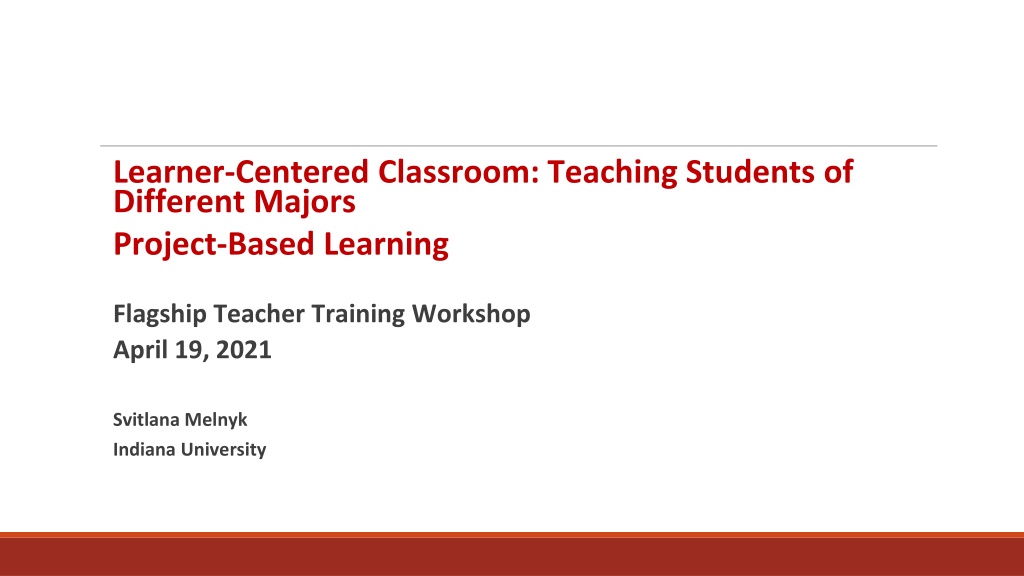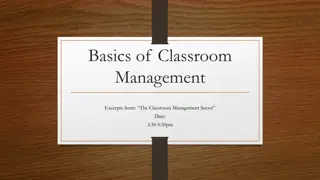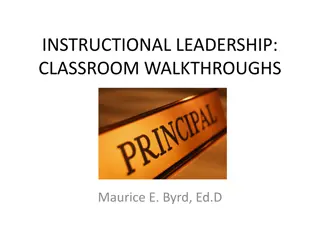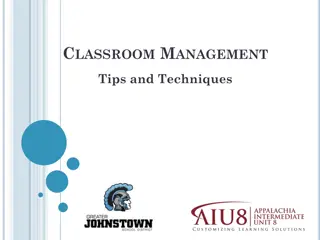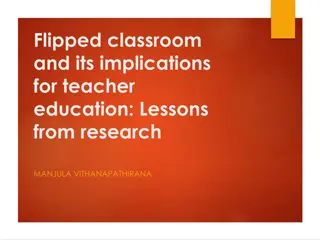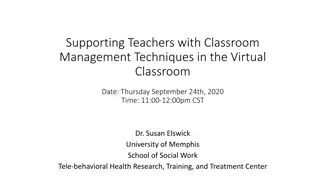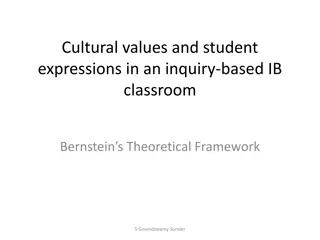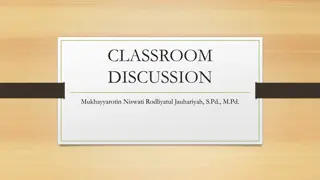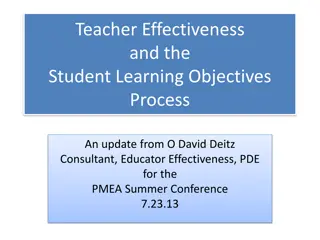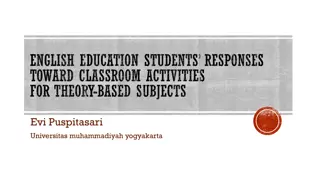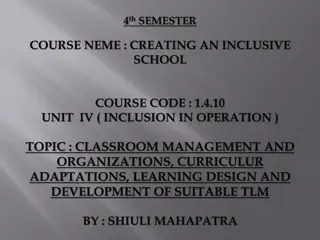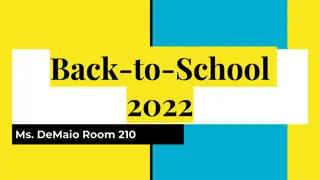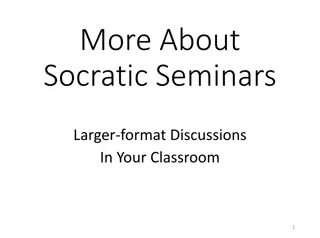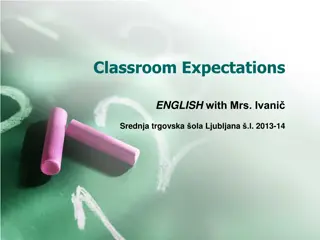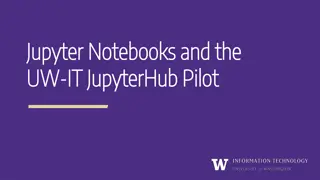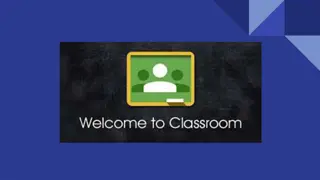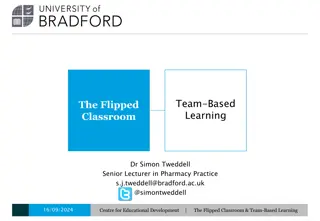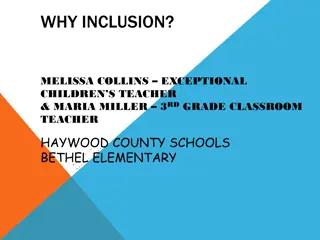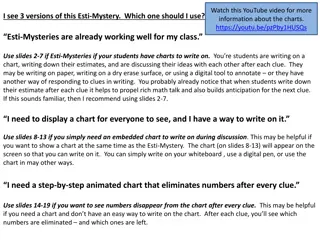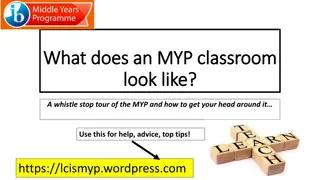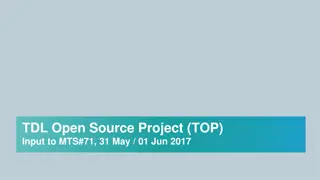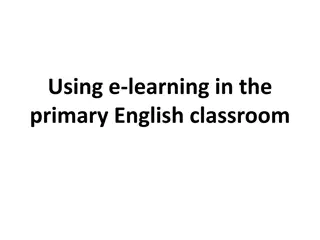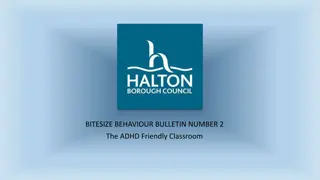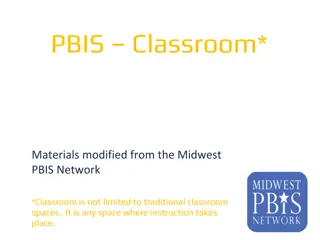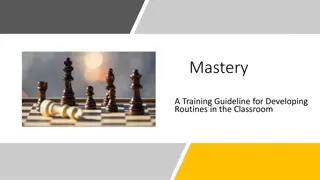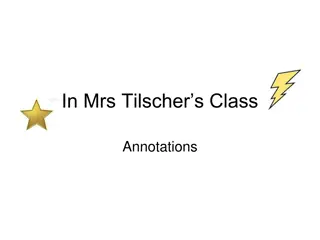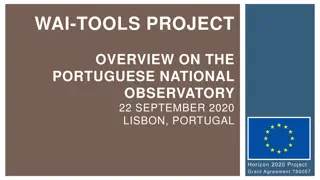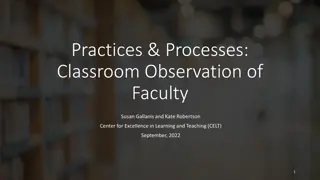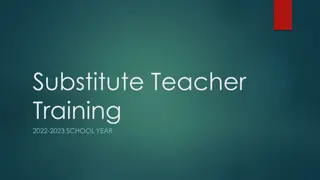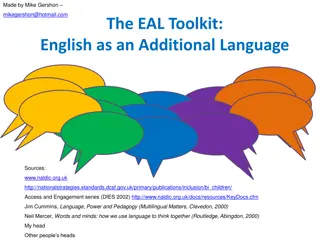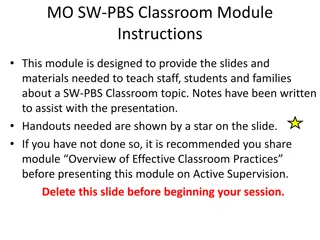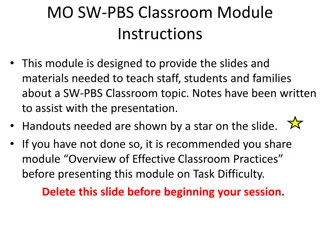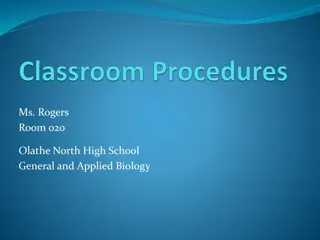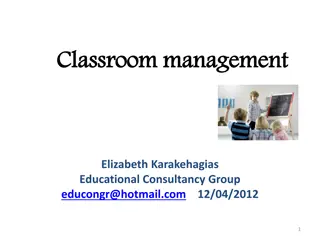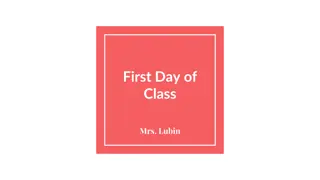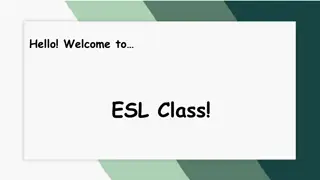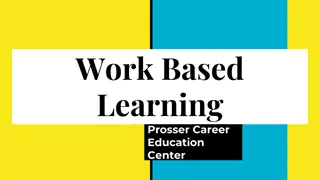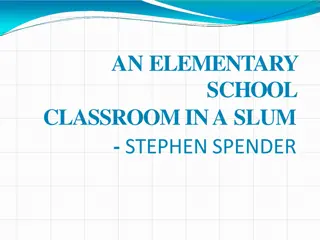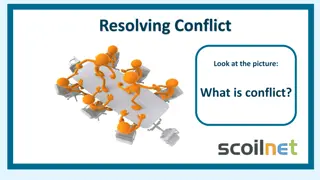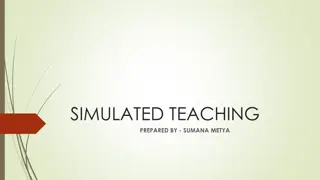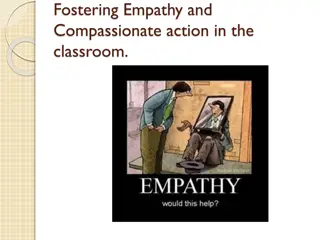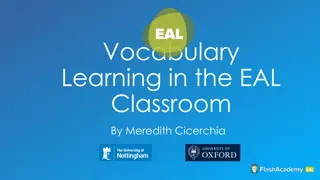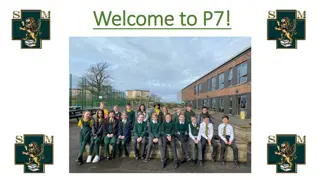Enhancing Learning Through Project-Based Learning in a Diverse Classroom
Explore the benefits and strategies of Project-Based Learning (PBL) in a diverse classroom setting, focusing on learner-centered approaches, content-based courses, student engagement, and authentic project design elements to improve language skills, motivation, communication, and problem-solving abilities.
Download Presentation

Please find below an Image/Link to download the presentation.
The content on the website is provided AS IS for your information and personal use only. It may not be sold, licensed, or shared on other websites without obtaining consent from the author. Download presentation by click this link. If you encounter any issues during the download, it is possible that the publisher has removed the file from their server.
E N D
Presentation Transcript
Learner-Centered Classroom: Teaching Students of Different Majors Project-Based Learning Flagship Teacher Training Workshop April 19, 2021 Svitlana Melnyk Indiana University
Curriculum: Content Based Courses Russian Political Culture Business Russian Russian for the Social Sciences Contemporary Russian Culture Russian Modernism Contemporary Russia in Film, Literature, and Art Russian Mass Media Russian Through Literature
How to create a learner-centered classroom? - content-based courses - varied topics - student voice & choice - student presentations - task-based activities (mock job interview, Shark Tank) - final paper ( ) and final presentation ( ) - projects (Wikipedia, podcasts)
What is PBL? Project Based Learning is a teaching method in which students gain knowledge and skills by working for an extended period of time to investigate and respond to an authentic, engaging, and complex question, problem, or challenge http://www.bie.org/about/what_pbl
Benefits of PBLL improving language skills and motivation for studies (Beckett & Miller, 2006) improving communication and problem-solving skills (Stoller and Myers, 2019) increasing job satisfaction (Hixson, Ravitz, & Whisman, 2012)
Gold Standard PBL: Essential Project Design Elements Challenging problem or question Sustained inquiry Authenticity Students voice and choice Reflection Critique and revision Public product http://www.bie.org/about/what_pbl
Why Wikipedia? advantages and disadvantages Largest source of information Anybody can edit it Free Not scholarly Constantly updated Quality of the articles vary significantly Anybody can edit it Information is not always verified
Project stages List of sources and outline (10 points) 1st draft (25 points) First Draft Peer Review (5 points) Final version of the article (20 points) Uploading/creating the page on Wikipedia (10 points) Mini-conference: final oral presentation (30 points) Final product: 19 Wikipedia pages
Students testimonials I thought this project was useful in enhancing my Russian language skills, my understanding of how Wikipedia works + my research skills. I really enjoyed learning about the topic and people. It was an interesting experiment. Learning about unknown-to-me subject. Learning to use technical language in Russian. I think it was very useful in synthesizing all the aspects of language learning (presenting, writing, translating, finding sources, adjusting to a new style, etc.). Students from the Russian for Social Sciences class Learning about an otherwise unknown person. I liked that we created a concrete project which I could show to people. I enjoyed doing research in Russian about a person who is not very well known.
What projects can you do in your class? Beginner level (poster for a language event (festival); wall newspaper; creation of material for a local school, community event (picnic or fundraising); promotional video in the target language) Intermediate level (language event in a local school; booklet in target language about university, department, town; interviews with members of local community; poetry reading) Advanced level (podcasts; community events; website creation; video; theatrical performance) More ideas: Stoller & Myers, 2020
Project based learning improves language skills and motivation for studies Students gain new specific knowledge through the target language They improve their research skills and communication skills They increase their satisfaction from language learning through creation of socially meaningful product
Further reading about PBLL: Beckett, Gulbahar H., and Tammy Slater, eds. Global Perspectives on Project-Based Language Learning, Teaching, and Assessment: Key Approaches, Technology Tools, and Frameworks. New York: Routledge, 2019. Gras-Vela zquez Adria n, ed. Project-Based Learning in Second Language Acquisition: Building Communities of Practice in Higher Education. New York: Routledge, 2020. Stoller, Fredricka L., and CeAnn Chandel Myers. Project-Based Learning: A Five-Stage Framework to Guide Language Teachers. In Project-Based Learning in Second Language Acquisition: Building Communities of Practice in Higher Education, edited by Adria n Gras-Vela zquez, 25 47. New York: Routledge, 2020. PBL Institutions: The Buck Institute for Education National Foreign Language Resource Center Thank you!
